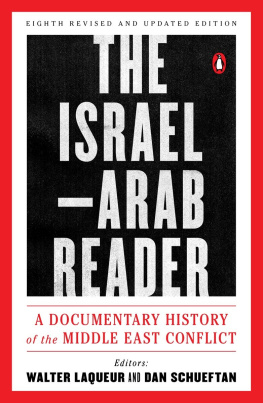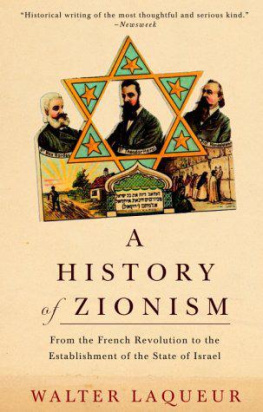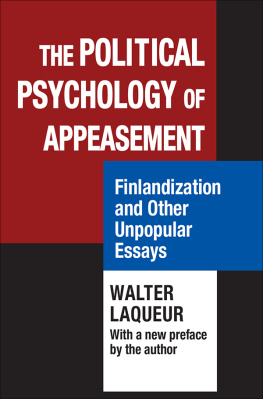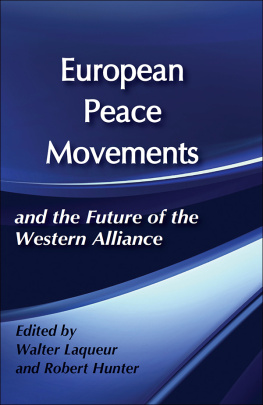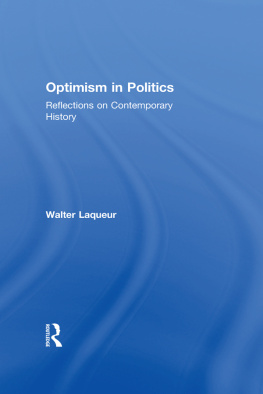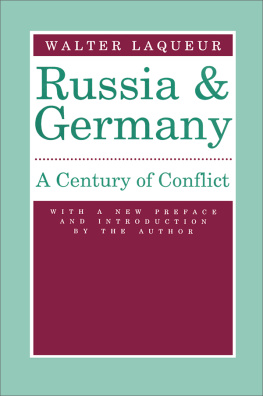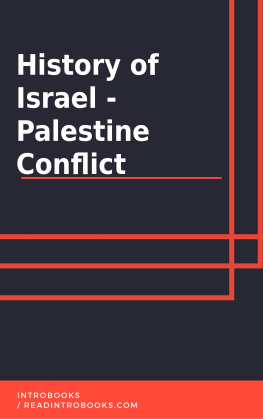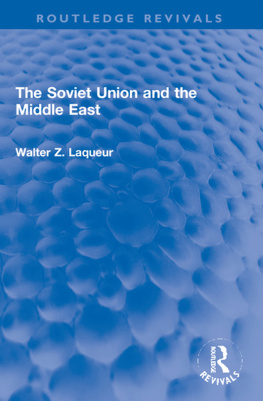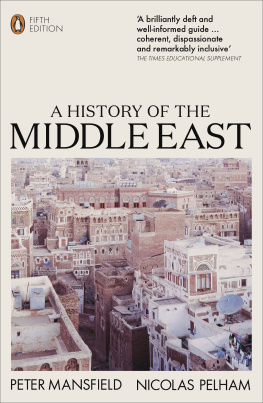Walter Laqueur - The Israel-Arab Reader: A Documentary History of the Middle East Conflict
Here you can read online Walter Laqueur - The Israel-Arab Reader: A Documentary History of the Middle East Conflict full text of the book (entire story) in english for free. Download pdf and epub, get meaning, cover and reviews about this ebook. year: 2016, publisher: Penguin Publishing Group, genre: Politics. Description of the work, (preface) as well as reviews are available. Best literature library LitArk.com created for fans of good reading and offers a wide selection of genres:
Romance novel
Science fiction
Adventure
Detective
Science
History
Home and family
Prose
Art
Politics
Computer
Non-fiction
Religion
Business
Children
Humor
Choose a favorite category and find really read worthwhile books. Enjoy immersion in the world of imagination, feel the emotions of the characters or learn something new for yourself, make an fascinating discovery.
- Book:The Israel-Arab Reader: A Documentary History of the Middle East Conflict
- Author:
- Publisher:Penguin Publishing Group
- Genre:
- Year:2016
- Rating:5 / 5
- Favourites:Add to favourites
- Your mark:
- 100
- 1
- 2
- 3
- 4
- 5
The Israel-Arab Reader: A Documentary History of the Middle East Conflict: summary, description and annotation
We offer to read an annotation, description, summary or preface (depends on what the author of the book "The Israel-Arab Reader: A Documentary History of the Middle East Conflict" wrote himself). If you haven't found the necessary information about the book — write in the comments, we will try to find it.
The Israel-Arab Reader: A Documentary History of the Middle East Conflict — read online for free the complete book (whole text) full work
Below is the text of the book, divided by pages. System saving the place of the last page read, allows you to conveniently read the book "The Israel-Arab Reader: A Documentary History of the Middle East Conflict" online for free, without having to search again every time where you left off. Put a bookmark, and you can go to the page where you finished reading at any time.
Font size:
Interval:
Bookmark:

PENGUIN BOOKS
THE ISRAEL-ARAB READER
WALTER LAQUEU R is a former director of the Wiener Library Institute of Contemporary History in London as well as head of the International Research Council of the Center for Strategic and International Studies in Washington, D.C. He has taught at Georgetown, Harvard, Brandeis, Johns Hopkins, and the University of Chicago. He is the author of The Last Days of Europe and more than twenty other books, which have been translated into as many languages, and was the founding editor of the Journal of Contemporary History.
DAN SCHUEFTAN is the director of the National Security Studies Center as well as the International Graduate Program in National Security at the University of Haifa. From 2012 to 2014 he was a visiting professor at Georgetown University. The author of numerous books on the history and politics of the Middle East, he has been briefing members and staffers of the U.S. Congress and the executive branch since the 1970s, and briefs ministers and parliamentarians in European and Far Eastern countries as well.
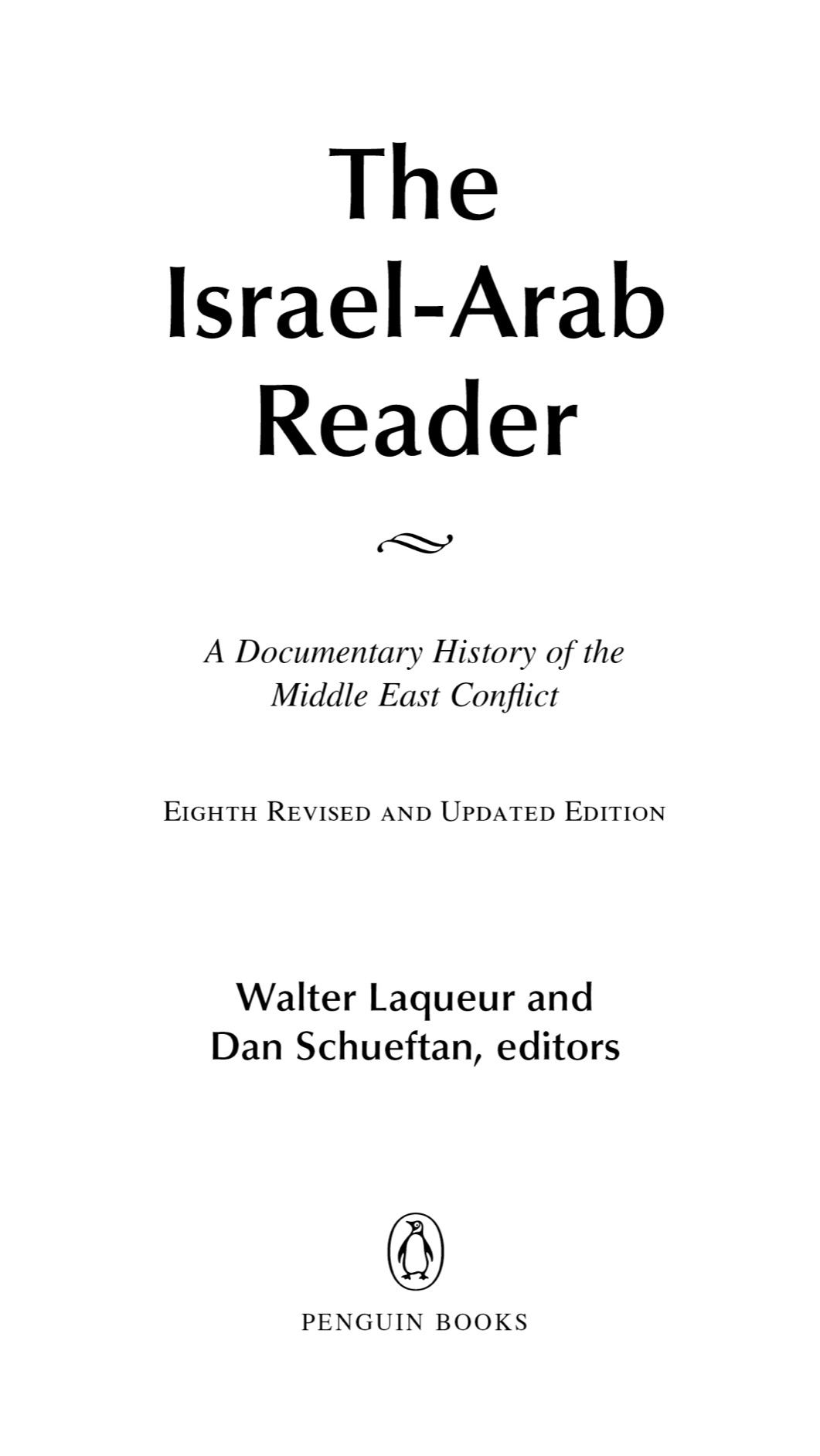
PENGUIN BOOKS
An imprint of Penguin Random House LLC
375 Hudson Street
New York, New York 10014
penguin.com
The Israel-Arab Reader edited by Walter Laqueur
first published by Citadel Press 1969
Revised edition published in Penguin Books (U.K.) 1970
Third revised edition published by Bantam Books 1976
Fourth revised and updated edition, edited by Walter Laqueur and Barry
Rubin, published in Pelican Books 1984
Published in Penguin Books (U.S.A.) 1991
Fifth revised and updated edition published 1995
Sixth revised and updated edition published 2001
Seventh revised and updated edition published 2008
Eighth revised and updated edition, edited by Walter Laqueur and Dan Schueftan, published 2016
Copyright B. L. Mazel, Inc., 1969, 1970
Copyright Walter Laqueur, 1976
Copyright Walter Laqueur and Barry Rubin, 1984, 1995, 2001, 2008
Copyright Walter Laqueur and Dan Schueftan 2016
Penguin supports copyright. Copyright fuels creativity, encourages diverse voices, promotes free speech, and creates a vibrant culture. Thank you for buying an authorized edition of this book and for complying with copyright laws by not reproducing, scanning, or distributing any part of it in any form without permission. You are supporting writers and allowing Penguin to continue to publish books for every reader.
Ebook ISBN 978-1-101-99241-8
Cover design: Colin Webber
Version_1
It is close to fifty years that work on the first edition of this Reader began, but a solution to this conflict seems as remote as ever. Eight years have gone by since publication of the last (seventh) edition. These years have witnessed further negotiations and further fighting, but no significant progress towards peace, even though some important Arab-Israeli issues have been settled. New politicians and new military leaders have been dealing with the issues involved, but in many ways they are further away now from agreement than they were twenty or forty years ago, especially on the question of whether there should be one state or two on the territory of what was once the League of Nations mandate of Palestine.
In the waning years of the last century, when talk was on the Middle East conflict, it could be taken for granted this referred to Israel and the Palestinians. But this is no longer the case: now it could refer to Iraq or Iran, to Syria or Yemen, to the Islamic State or the confrontation between Sunnis and Shiites, or to the region as a whole. When the Reader first appeared, the Six-Day War had been fought, but the Yom Kippur Warlet alone the Lebanese civil war (which lasted fifteen years)was still ahead, as were two intifadas and scores of peace plans. Gamal Abdel Nasser was still ruling Egypt, the Shah was in power in Iran, and Bashar al-Assad had just been born. Neither Hamas nor Hezbollah had been established. The wave of religious fanaticism that was to sweep not only the Middle East but large parts of Asia and Africa had not remotely reached its present intensity.
It is useful to recall that while the Middle East in the late 1960s was not among the worlds calmest regions, many of its more violent conflicts lie still ahead. But the conflict we document in this volume already existed. As it has endured, so have the attempts to bring it to an end, or at least to achieve temporary or local arrangements to defuse it, and an ever greater number of leading statesmen has visited the region. But no significant progress has been achieved. Egypt and Jordan signed peace treaties with Israel and there was even an Israel-PLO (Palestinian Liberation Organization) agreement, albeit one that was never fully implemented within a comprehensive peace settlement. The Gaza Strip fell under Hamas rule; it was temporarily invaded and hit hard by Israeli forces that inflicted greater damage following military action against Israel by Hamas and by other militants infiltrating Israel through tunnels, as well as bombarding Israeli cities and settlements with thousands of rockets.
For more than five decades The Israel-Arab Reader has tried to document these developments as objectively as possible. Over the years it has become a standard text for those wishing to familiarize themselves with the essential issues involved in this conflict.
This new edition is dedicated to the memory of Barry Rubin, who acted as co-editor of the Reader for more than two decades. Without his decisive contribution, work on this Reader would not have continued.
We also wish to thank Christopher Wall and Josh Klein for their help in the preparation of the present edition.
Walter Laqueur Dan Schueftan
Bilu are the first letters of a passage in Isaiah, Chapter 2, Verse 5: House of Jacob, come, let us go. The Biluim, about five hundred young people mainly from the Kharkov region, were part of the wider movement of the Lovers of Zion (Hovevei Zion), which had developed in Russia in the early eighteen-eighties, mainly under the impact of the pogroms of 1881. This manifesto was issued by a Bilu group in Constantinople in 1882.
To our brothers and sisters in Exile!
If I help not myself, who will help me?
Nearly two thousand years have elapsed since, in an evil hour, after a heroic struggle, the glory of our Temple vanished in fire and our kings and chieftains changed their crowns and diadems for the chains of exile. We lost our country where dwelt our beloved sires. Into the Exile we took with us, of all our glories, only a spark of the fire by which our Temple, the abode of our Great One, was engirdled, and this little spark kept us alive while the towers of our enemies crumbled into dust, and this spark leapt into celestial flame and shed light on the heroes of our race and inspired them to endure the horrors of the dance of death and the tortures of the autos-da-f. And this spark is again kindling and will shine for us, a true pillar of fire going before us on the road to Zion, while behind us is a pillar of cloud, the pillar of oppression threatening to destroy us. Sleepest thou, O our nation? What hast thou been doing until 1882? Sleeping, and dreaming the false dream of Assimilation. Now, thank God, thou art awakened from thy slothful slumber. The Pogroms have awakened thee from thy charmed sleep. Thine eyes are open to recognise the cloudy delusive hopes. Canst thou listen silently to the taunts and mockeries of thine enemies?... Where is thy ancient pride, thine olden spirit? Remember that thou wast a nation possessing a wise religion, a law, a constitution, a celestial Temple whose wall is still a silent witness to the glories of the past; that thy sons dwelt in palaces and towers, and thy cities flourished in the splendour of civilisation, while these enemies of thine dwelt like beasts in the muddy marshes of their dark woods. While thy children were clad in purple and fine linen, they wore the rough skins of the wolf and the bear. Art thou not ashamed?
Font size:
Interval:
Bookmark:
Similar books «The Israel-Arab Reader: A Documentary History of the Middle East Conflict»
Look at similar books to The Israel-Arab Reader: A Documentary History of the Middle East Conflict. We have selected literature similar in name and meaning in the hope of providing readers with more options to find new, interesting, not yet read works.
Discussion, reviews of the book The Israel-Arab Reader: A Documentary History of the Middle East Conflict and just readers' own opinions. Leave your comments, write what you think about the work, its meaning or the main characters. Specify what exactly you liked and what you didn't like, and why you think so.

